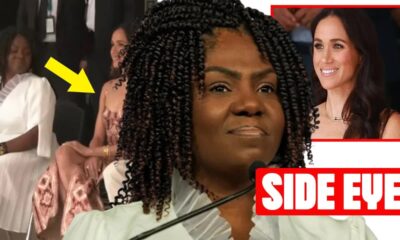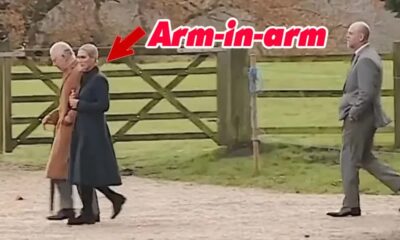All round
Filmmaker Paul Haggis ordered to pay rape accuser $7.5M
Paul Haggis, a Canadian filmmaker, has been ordered by a jury to pay at least $7.5 million to a woman who accused him of rape.
This case is one of several that have emerged in Hollywood during the MeToo era and have brought the behavior of notable figures in the industry under scrutiny.
Haggis, who is known for writing the Oscar-winning films “Million Dollar Baby” and “Crash,” has denied the allegations.
The civil court trial involved Haggis and Haleigh Breest, a publicist who met Haggis while working at movie premieres in the early 2010s.
The case touched upon various subjects, including sex, socializing at red-carpet events, and Scientology.
Trending:
- Meghan Markle Steals the Spotlight Again: A Royal Engagement Gone Awry
- “Harry and Meghan’s Tense Moment: A Marriage Under Scrutiny”
- Tension Unveiled: Frances Marquez’s Discontent with Meghan Markle in Colombia
- Elton John’s Scathing Remarks Leave Meghan Markle in Tears at Music Awards
- Meghan Markle’s On-Set Outburst: A Diva in Disguise?
Breest claimed that after a screening afterparty in January 2013, Haggis offered her a lift home and invited her to his New York apartment for a drink.
She alleged that Haggis then subjected her to unwanted advances and ultimately compelled her to perform oral sex and raped her despite her entreaties to stop.
Haggis, who is now 69 years old, claimed that the publicist was flirtatious and initiated kisses and oral sex in an entirely consensual interaction.
He stated that he could not recall whether they had intercourse.
After a day of deliberation, the jury sided with Breest, who said that she suffered psychological and professional consequences as a result of her encounter with Haggis.
She filed a lawsuit against him in late 2017.
In addition to awarding Breest $7.5 million to compensate for her suffering, the jury also determined that punitive damages should be awarded.
The jury will return on Monday for further court proceedings to decide on the amount of the punitive damages.
The verdict in this case came a few weeks after another civil jury in the federal courthouse next door ruled that Kevin Spacey did not sexually abuse fellow actor Anthony Rapp, who was a teenager at the time, in 1986.
Danny Masterson, an actor known for his role on “That ’70s Show,” and former movie magnate Harvey Weinstein are currently on trial in Los Angeles, facing separate criminal rape charges.
Both men deny the allegations, and Weinstein is appealing a conviction in New York.
All four of these cases emerged following the MeToo movement, which was sparked by news reports in October 2017 about decades of allegations of sexual misconduct against Weinstein.
Breest stated that she decided to sue Haggis because his public condemnations of Weinstein had angered her.
Four other women also testified that they experienced forceful, unwelcome advances or rape by Haggis in separate incidents dating back to 1996, but none of them took legal action.
The Associated Press generally does not identify individuals who say they have been sexually assaulted unless they come forward publicly, as Breest has done.
Haggis denied all of the allegations made against him. His defense team presented jurors with several women who testified that Haggis took it in stride when they rejected his romantic or sexual overtures, including his ex-wife and former “Dallas” cast member Deborah Rennard.
During the three weeks of testimony in the trial, the court examined text messages that Breest sent to friends about the incident with Haggis, emails between the two of them before and after the night in question, and discrepancies between their testimony and what they said in early court papers.
Experts in psychology offered conflicting perspectives on widespread misconceptions about the behavior of rape victims, such as the assumption that victims would have no subsequent contact with their attackers.
Jurors also heard testimony from witnesses who were present at the afterparty and from individuals who had interactions with Haggis and Breest before and after the night in question.
The lawyers for both sides argued about whether Haggis was physically capable of carrying out the alleged attack, which took place eight weeks after he had undergone spinal surgery.
The trial also looked at the issue of consent and whether Breest’s actions and words indicated that she was willing to engage in the sexual activity in question.
On Thursday, after the verdict was announced, Breest hugged her lawyers and said she was “very grateful” for the outcome as she left the court.
In a statement released later, she expressed gratitude “that the jury chose to follow the facts — and believed me.”
Haggis, on the other hand, said he was “very disappointed in the results.” He stated that he would continue to fight to clear his name with the help of his team.
As he left the courthouse with his three adult daughters, one of whom had been crying on her sister’s shoulder when the verdict was announced, Haggis said, “I’m going to continue to, with my team, fight to clear my name.”








































































































